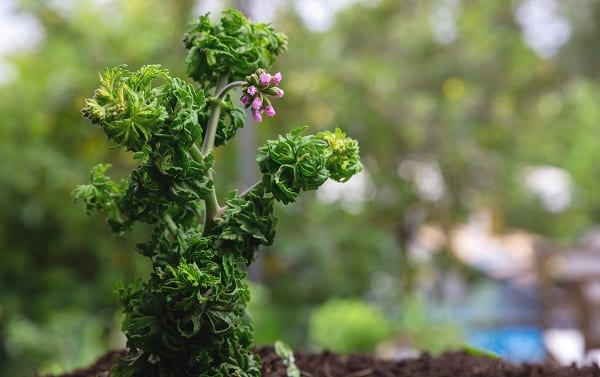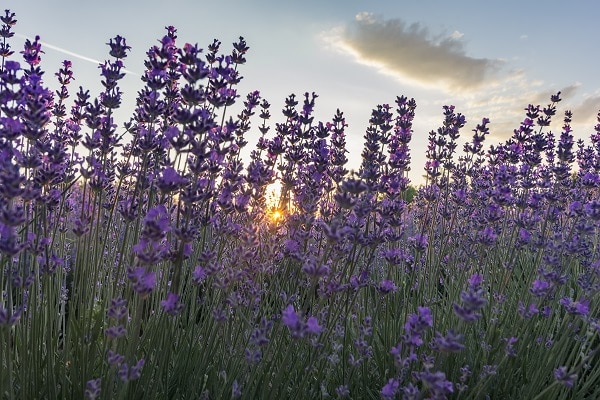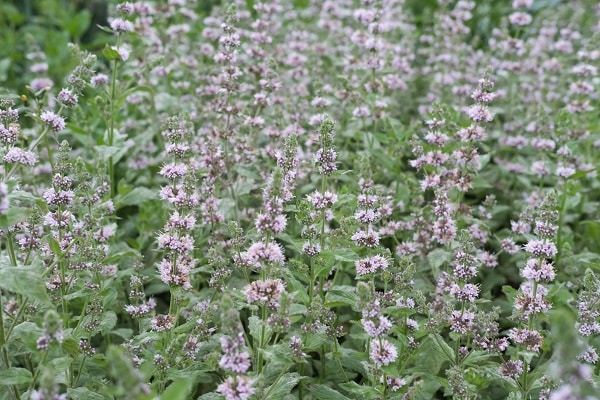Do you hate mosquitoes? If you are like most people, the answer is probably an easy yes! They are pesky insects that can ruin a good time outdoors. Not to mention, they can carry some nasty diseases like malaria and the Zika virus. Luckily, there are plants that act as natural mosquito repellants! From the well-known citronella plant to the lesser-known eucalyptus tree, this article will introduce you to six plants that can help keep mosquitoes away.
Contents
Citronella
The citronella plant is a species of mosquito-repelling plant in the genus Cymbopogon. The plant grows to a height of 2-3 meters and has long slender leaves. The name “citronella” comes from the lemon-like scent of the leaves, which you can use to repel mosquitoes. The plant is native to tropical Asia, but you can also find it in North America, Africa, and Australia. Citronella oil is extracted from the plant leaves and used in mosquito repellents. In addition, you can find the oil in various candles, soaps, and lotions.
To grow this plant, start by planting the seeds in well-drained soil. Citronella plants need full sun and plenty of water. Once the plant reaches a height of about 30 cm, you can begin to harvest the leaves. To make citronella oil, place the leaves in a carrier oil like jojoba oil or sweet almond oil and let it infuse for six weeks.
Lemon Balm
Lemon balm is a perennial herb in the mint family. It’s native to Europe and Asia, but it now grows all over the world. The plant has light green leaves with a lemon-like fragrance. People have used lemon balm for centuries as a medicinal herb. Today, people still use it to treat anxiety, insomnia, and indigestion.
Lemon balm also has natural mosquito-repellent properties. A 2017 study found that lemon balm essential oil can effectively repel mosquitoes for up to 2 hours. The study also found that the oil repelled more than 80% of mosquito species tested, including Aedes aegypti (the species that spreads the Zika virus).
To grow lemon balm, start by planting the seeds in rich, well-drained soil. The plants need full sun but can also tolerate partial shade. Once the plants have time to establish, water them regularly and fertilize them once a month. You can begin to harvest the leaves after about four weeks.
Lavender
The lavender plant is a popular choice for many gardens because of its beautiful purple flowers and because it can help naturally repel mosquitoes. Mosquitoes are attracted to the scent of human skin, but the strong fragrance of lavender repels them.
In addition, the oil from lavender plants can be used to create an effective mosquito repellent. To use lavender oil as a repellent, simply add a few drops to your skin or clothing. The strong scent of lavender will help to keep mosquitoes at bay, making it a natural and effective way to enjoy your time outdoors without fear of being bitten.
If you would like to grow lavender in your garden, choosing a location that receives full sun and has well-drained soil is essential. In addition, lavender plants can be quite drought tolerant, so they are a good choice for gardens in dry climates.
Catmint
Catmint is a member of the mint family and is known for its strong scent. This plant is native to Europe and Asia, but you can now find it in many parts of the world. The aromatic oils in catmint are what give it its mosquito-repelling properties. When you release these oils into the air, they create an invisible barrier that mosquitoes are unable to penetrate.
In addition to repelling mosquitoes, catmint can repel other flying insects, such as flies and moths. So, if you’re looking for a natural way to keep mosquitoes at bay this summer, consider planting some catmint in your garden. To do this, sow the seeds in a sunny spot in your yard and water them regularly. It may take a few weeks for the plants to become established, but once they do, you’ll be able to enjoy mosquito-free evenings all summer long.
Basil
Basil is a versatile herb that can be used in cooking or to make herbal teas. However, basil also has a number of other uses. For example, you can use it as a natural mosquito repellent. Mosquitoes are attracted to the carbon dioxide that humans exhale and can sense it from up to 50 feet away. However, basil contains a compound called citronellol, which masks the carbon dioxide you exhale and makes it difficult for mosquitoes to find you.
In addition, you can use basil essential oil to repel mosquitoes. Add a few drops of oil to a diffuser or spray bottle filled with water, and then Mist the mixture around your home or patio. You can also add a few drops of oil to lotion or body oil to create your own natural mosquito repellent.
To start growing this helpful herb in your garden, purchase some basil seeds or seedlings from your local nursery. Then, plant them in a sunny spot in your yard and water them regularly. You can also grow basil indoors by placing the pot near a sunny window.
Eucalyptus Tree
The eucalyptus tree is a tall, evergreen tree that is native to Australia. The tree has long, narrow leaves and thick, fibrous bark. The leaves of the eucalyptus tree are highly aromatic and contain compounds that are known to repel mosquitoes. In addition, you can use the leaves to make a variety of products, including mosquito repellent candles and oils.
Eucalyptus trees also absorb carbon dioxide from the atmosphere and produce oxygen. As a result, people typically plant them in areas where air pollution is a concern. In addition to their ability to repel mosquitoes, eucalyptus trees are an important part of the ecosystem and provide many benefits to the environment.
While this one may be a little harder to come by, if you have the opportunity to plant a eucalyptus tree in your yard, it will definitely help keep the mosquitoes at bay. However, these trees need a lot of space to grow, so ensure you have enough room in your yard before planting one.
Start Adding Some Of These Plants To Your Garden!
As you can see, there are a number of plants that you can use to repel mosquitoes. If you’re looking for a natural way to keep these pests at bay, consider planting some of these mosquito-repelling plants in your garden. Not only will they help keep you bite-free, but they’ll also add a touch of beauty to your yard. So before you reach for the bug spray this summer, take a moment to consider these natural alternatives. Your skin (and your wallet) will thank you!





